'I'm starving hungry, not starving cold'
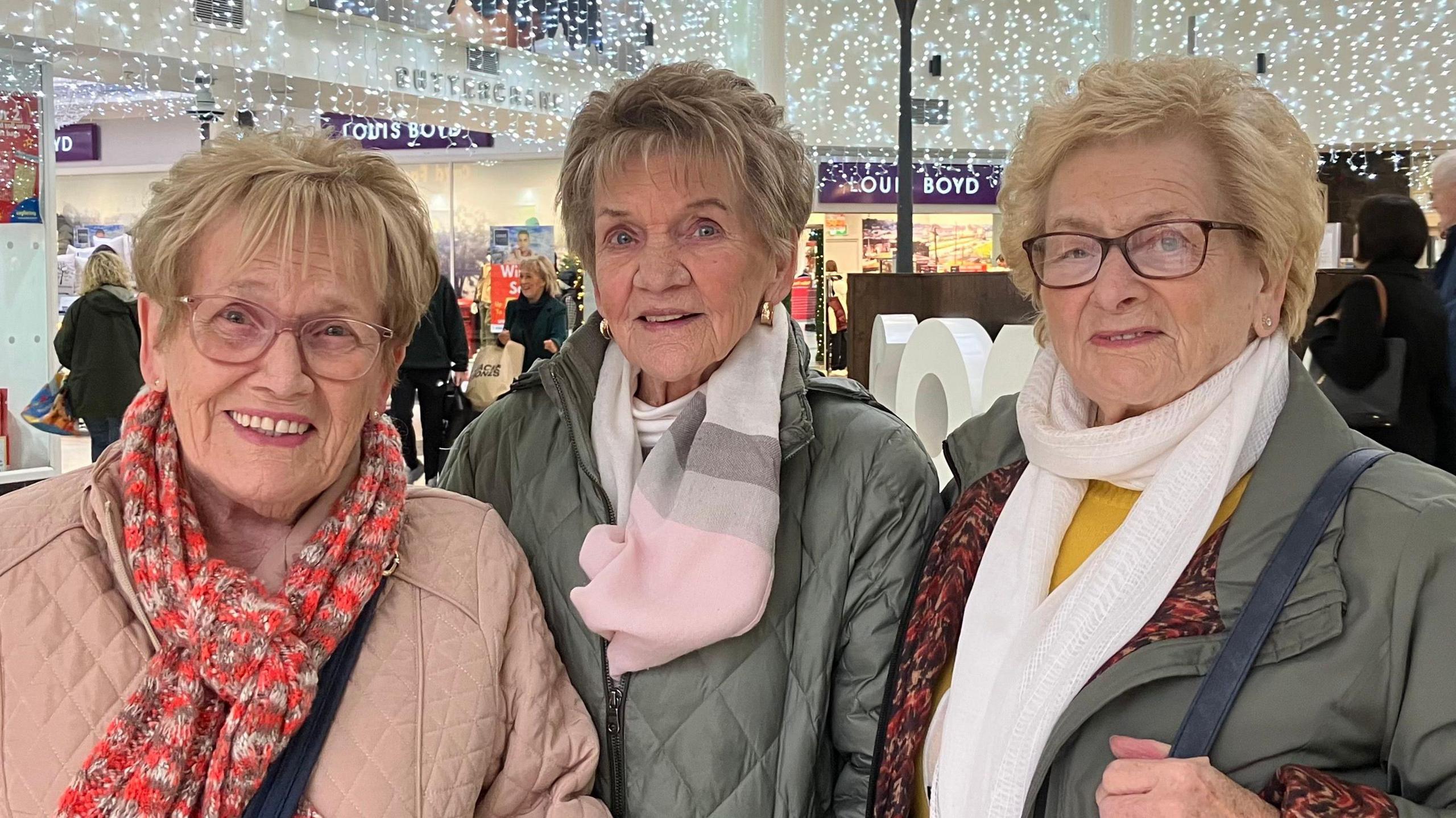
Sisters Mary Green from County Down, Geraldine Rock from County Armagh and Alice Donaghy from County Louth
- Published
Those things on your feet - are they gutties? Or perhaps they're runners or trainers?
For shoppers in the Buttercrane shopping centre in Newry, County Down, the proper name for that type of shoe is the subject of some debate.
"It's years since we wore gutties," say sisters Geraldine and Alice.
They're now "runners - not that we run much these days", Alice adds.
Tara and Stephen Weir both wear trainers, although Tara conceded that she "sometimes" wears gutties.
We love to debate the proper name of things. And usually in Northern Ireland, home to countless accents and dialects, there's more than one proper name for most things.
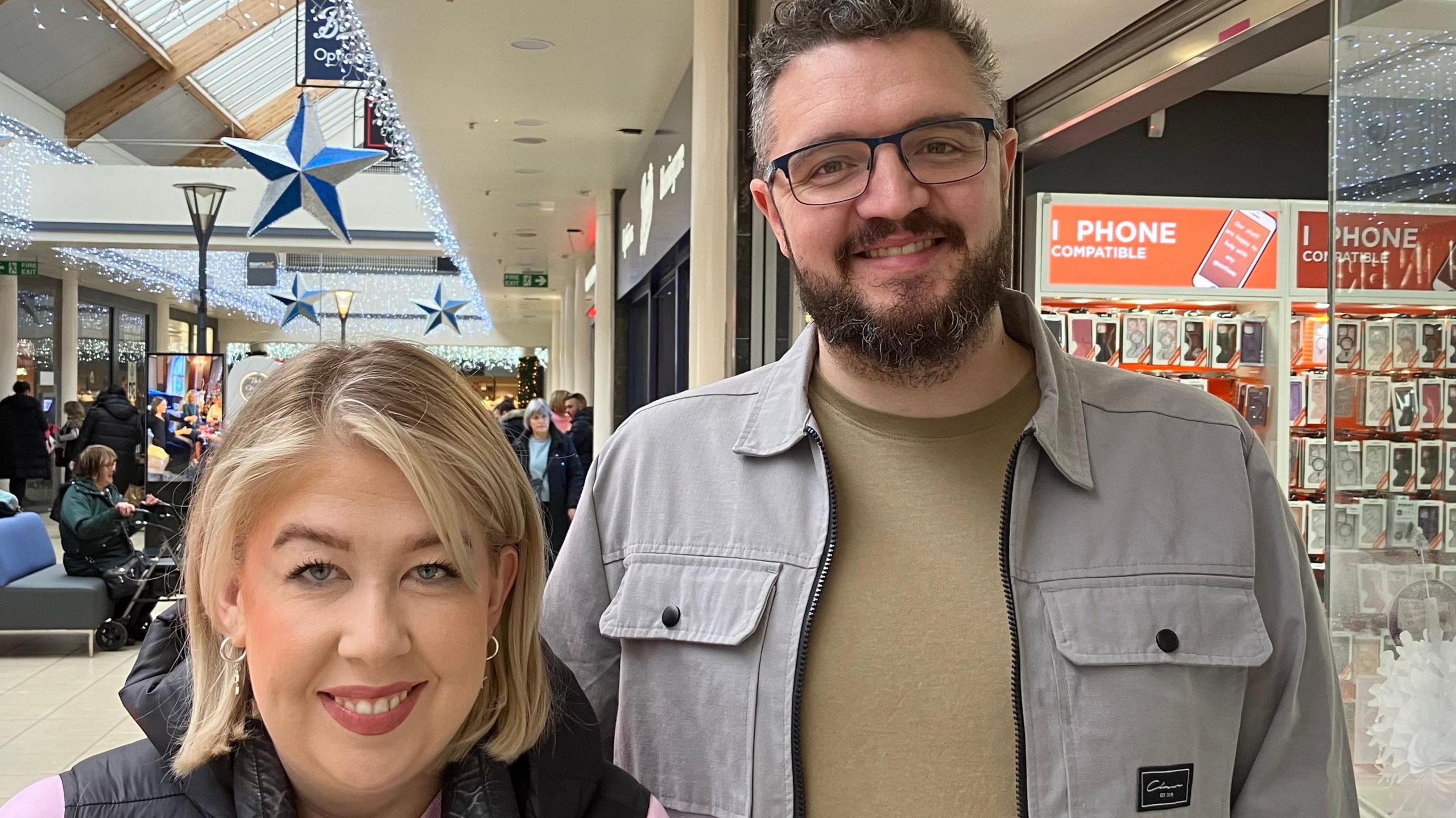
Tara and Stephen Weir from County Down say they both wear trainers
Gurning or bawling. Lashing or bucketing. Cracker or beezer.
"Any bars?" or "any craic"?
And that's before we even mention the Great Cribby/Kerby Controversy.
So back to gutties. It's a word that is extinct in Scotland and it's only in Northern Ireland where it "clings to life", according to a professor taking on the 'quare' task of charting who says what and where in Northern Ireland.
Karen Corrigan, professor of linguistics and English language at Newcastle University, is leading the Speak for Yersel project, which she describes as an "open-ended project which will create a "digital snapshot" of how English on the island of Ireland and Scots in Ulster are used in the 21st Century.
As each generation comes along they can "add to it", she says.
'Get rid of her Armagh brogue'
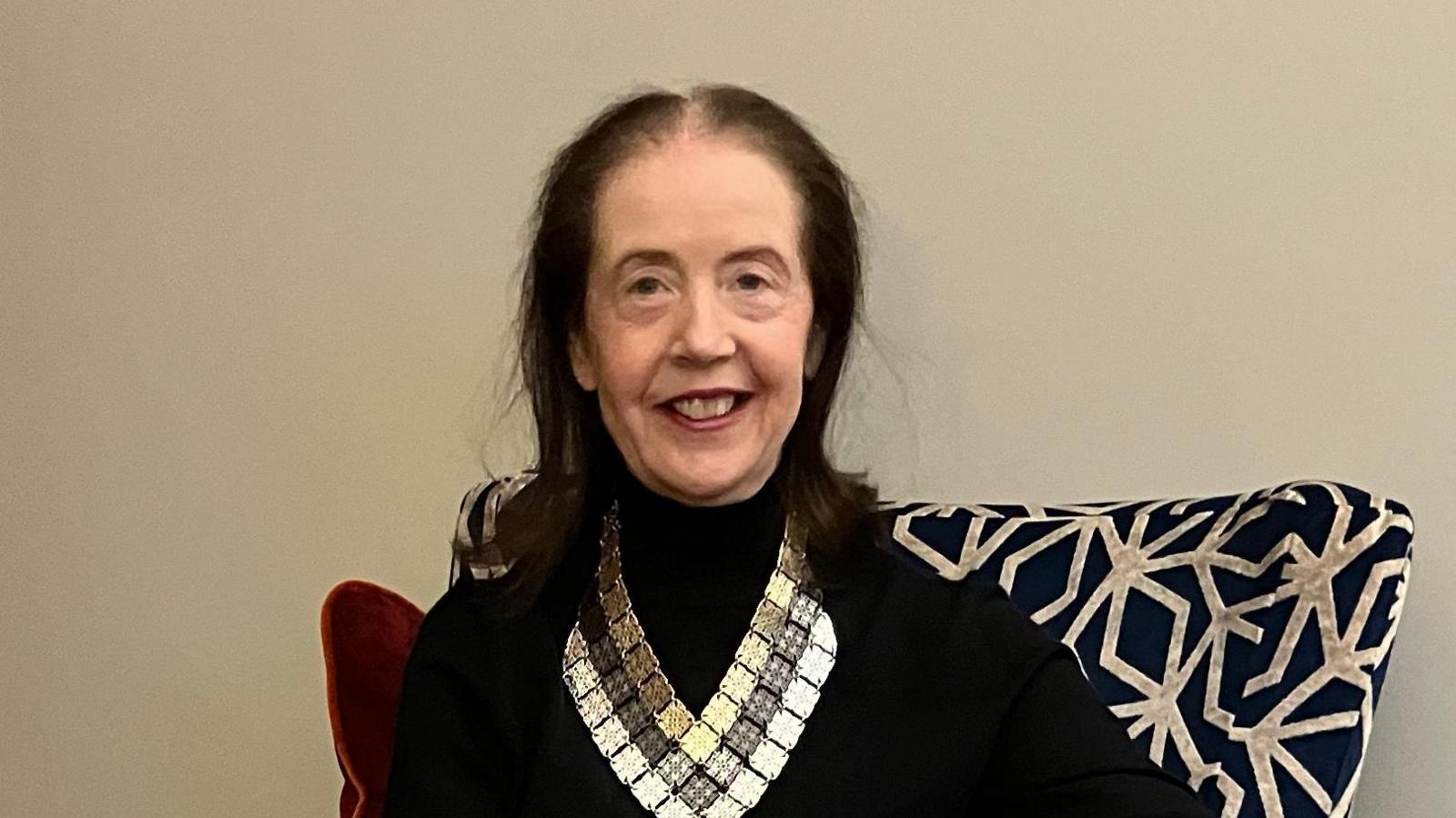
Prof Karen Corrigan was "fascinated by languages and dialects" as a small child
As a small child growing up in County Armagh, Prof Corrigan was "fascinated by languages and dialects".
She remembers the "poor elocution teacher drilling all of us, young girls", by getting them to say "how, now, brown cow" over and over again.
Prof Corrigan says it was the first time she realised there was a perception of a "polite way to talk" and that women were "obsessing over it".
Part of what she's interested in is whether men and women sound the same or different. She recalls that her mother wanted her to "get rid of her Armagh brogue" but her father couldn't have cared less about how he sounded.
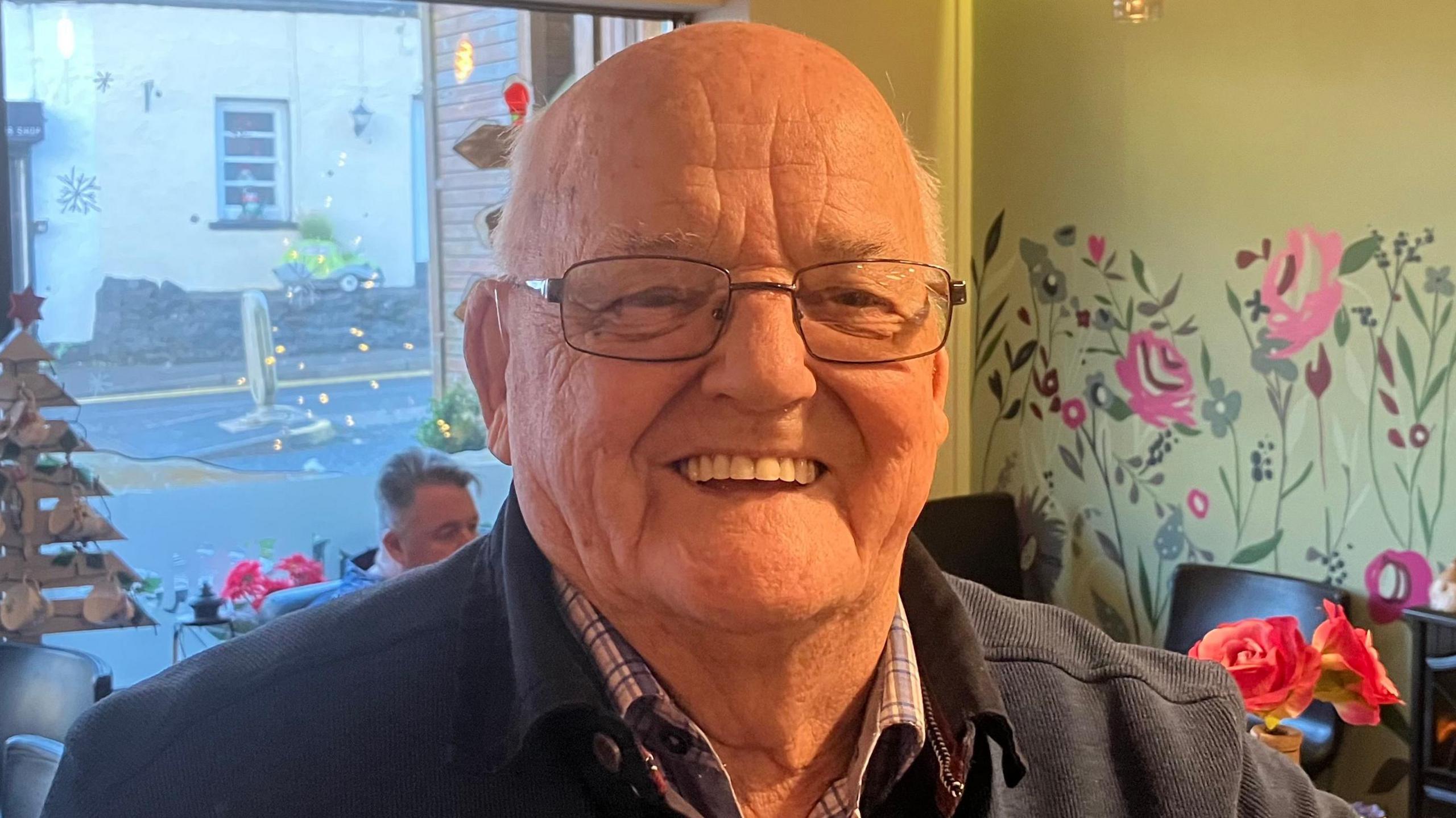
Sammy Law was chatting about how dialects are different
Do men and women sound different?
How do dialects develop and why are they important?
They mulled it over in Cullybackey, County Antrim.
Sit in on a cafe conversation with Reuben Glover and his friend Sammy Law and you could be forgiven for thinking they had a whole dialect to themselves.
On arriving late, Reuben says he came through the door head first to which Sammy replies "sure I fall in ta a shuck" (I fell into a ditch full of water).
When asked whether he would ever say "how, now, brown cow" in the perceived polite form, Reuben replies that "folk would think there was something wrong with me".
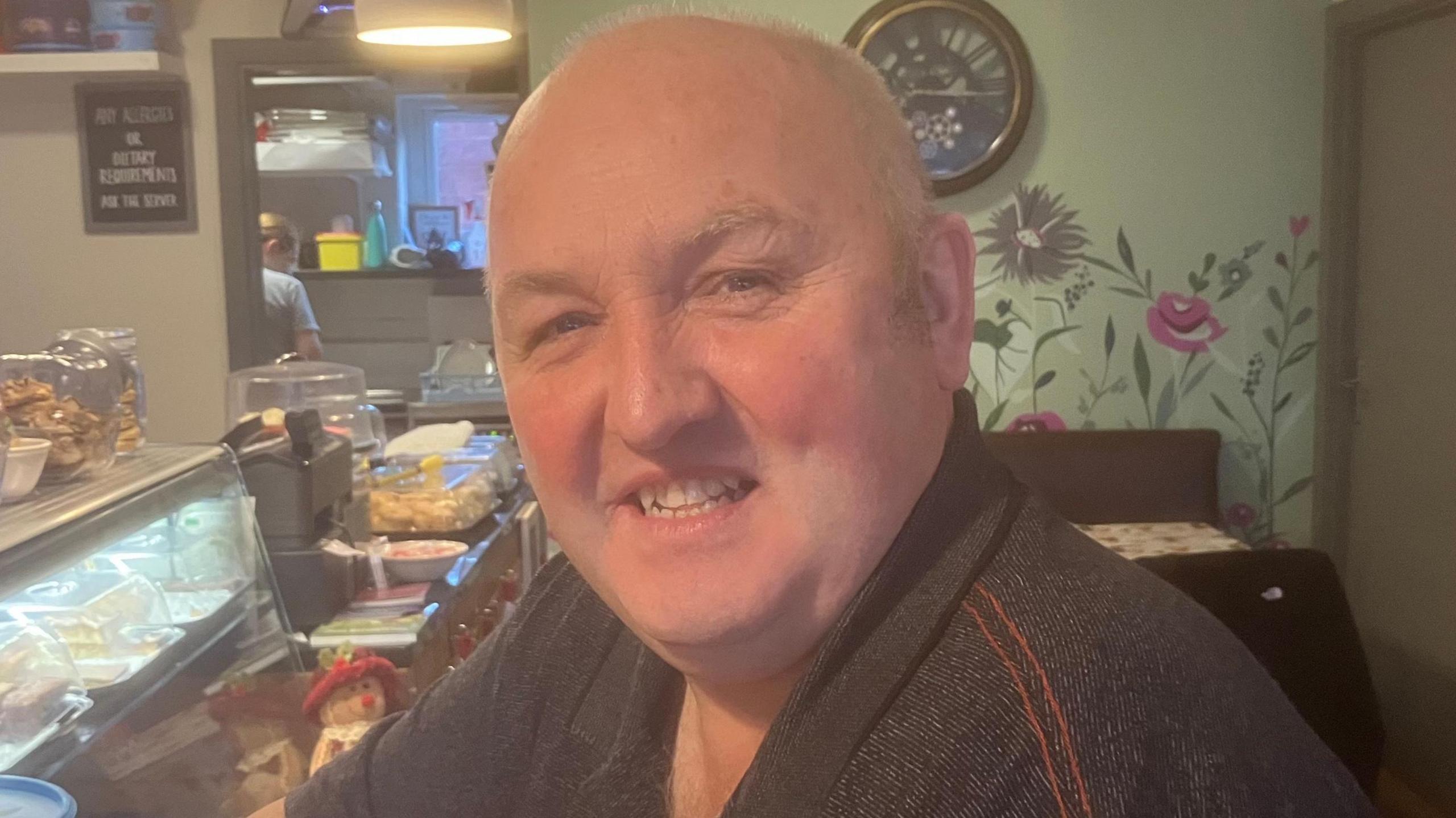
Reuben Glover enjoyed a bit of a chat in Cullybackey
At a large local supermarket, Rachel Downes enunciates the words "hoi, noi, brun coi" before laughing.
"I'm not even from the country," she adds, alluding to the perceived differences between town and country.
Another woman who lives in Ballymena, a few miles from Cullybackey, says the phrase in the perceived 'proper' way.
Conversation turns to the weather.
"It's starving," bellows Valerie Cubbitt in the car park. "Some people think when you say starving it means you're hungry. It means freezing."
Rachel laughs again: "I'm starving hungry, not starving cold."
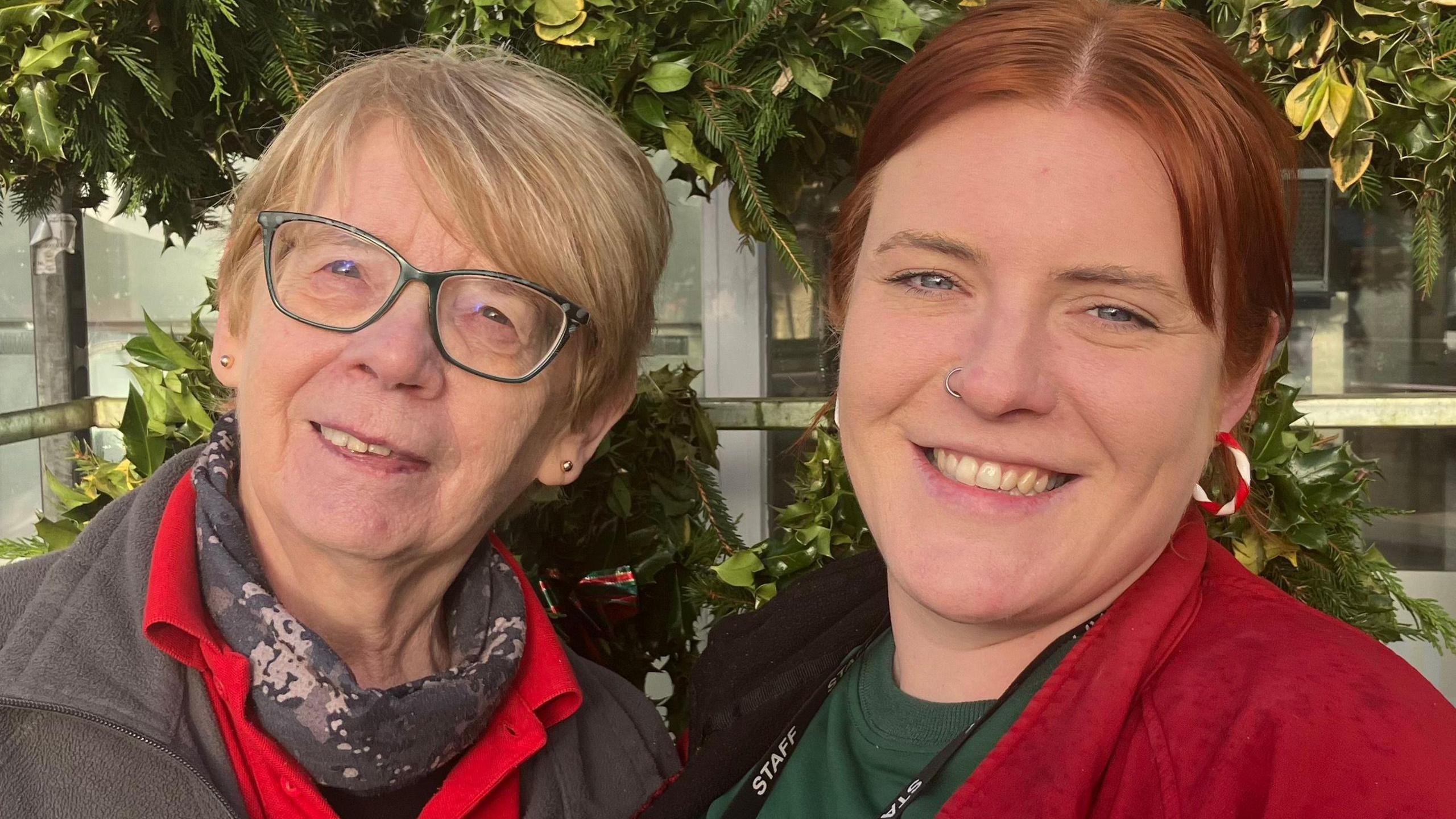
Valerie Cubitt and Rachel Downes in Cullybackey, County Antrim
Prof Corrigan wants to find out if dialects change over time. The project, she says, will be able to compare answers given by different generations.
How will pensioners compare to middle-aged people from the same place? Do teenagers sound like their parents or do they have a dialect that is "uniquely their own"?
There is no "right or wrong way" to speak English or Ulster Scots. These surveys "aren't exams", and there are no wrong answers, she explains.
Instead, the resources have been created to "showcase and celebrate" the rich linguistic diversity that can be found all across the island of Ireland.
Related topics
- Published7 July 2023
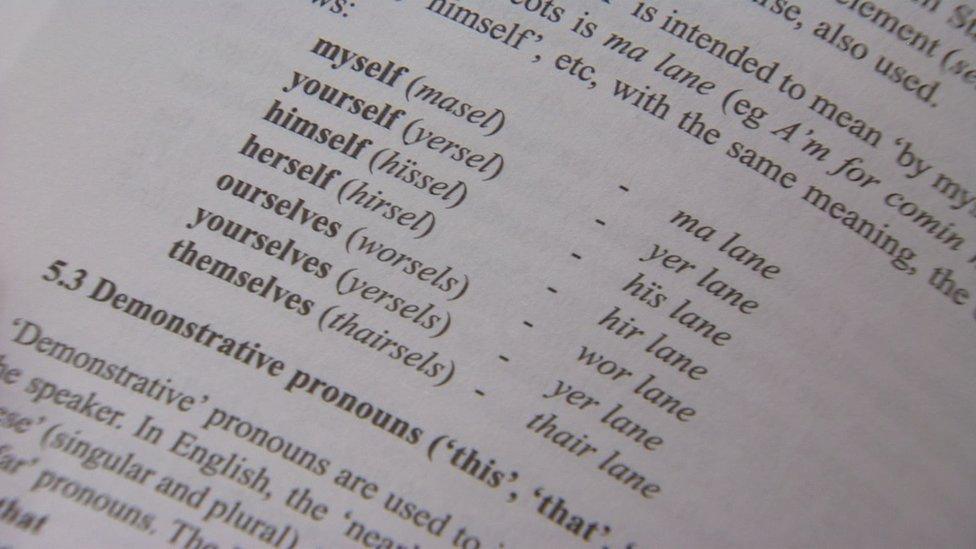
- Published11 November 2024

- Published12 September 2016

- Published22 July 2016
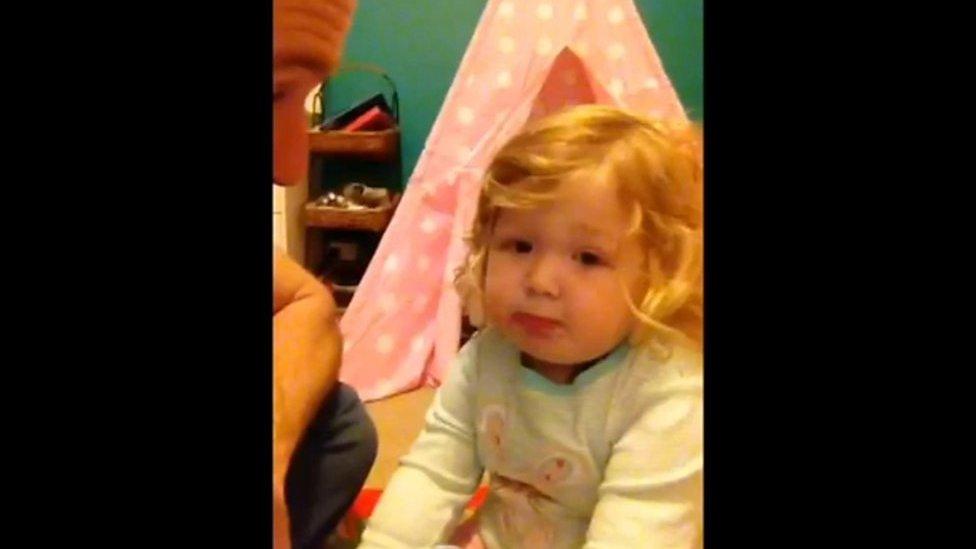
- Published22 April 2015